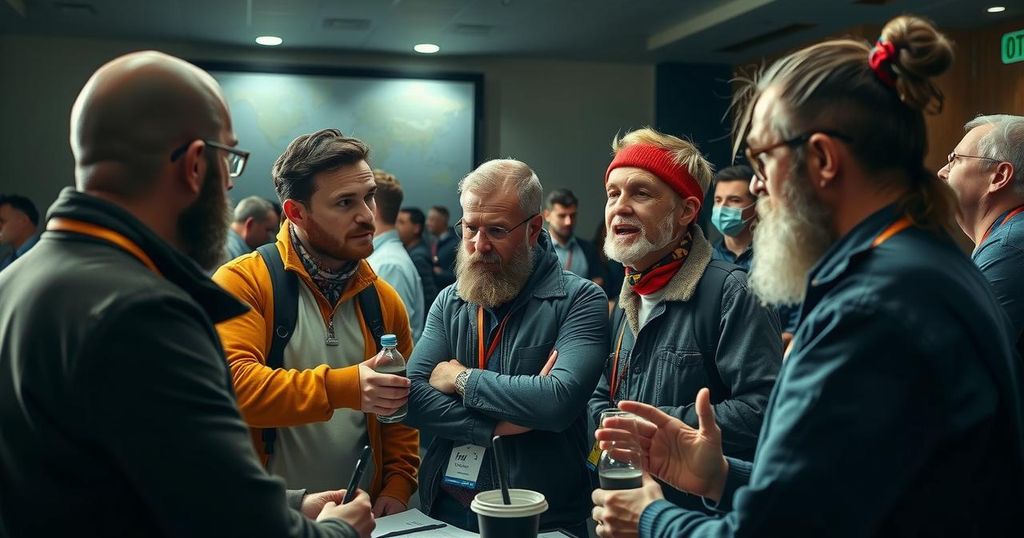Activists at COP29 Face Challenges Amid Restrictions on Protests

At COP29 in Baku, activists faced heavy restrictions limiting their ability to protest effectively, resulting in frustration and diminished visibility for their demonstrations. Despite these challenges, inventive approaches emerged as activists utilized art to convey impactful messages without confronting specific entities directly. The ongoing tension between maintaining civic spaces and imposed limitations on protests underscores the critical and complex landscape of climate advocacy today.
At COP29 in Baku, Azerbaijan, climate activists invested weeks organizing demonstrations but encountered significant restrictions that hampered their ability to voice demands effectively. Despite their efforts, visibility of protests was minimal, as many attendees, involved in key discussions, remained isolated in designated areas of the venue. Bianca Castro, a longtime participant at these conferences, expressed frustration at the difficulties in being heard, likening the current climate of protest to previous years when vibrant demonstrations were much more prevalent. The protests were further complicated by local policies limiting civil society’s participation. Activists were constrained in their protests, leaving them disheartened and concerned about the future of their efforts in climate advocacy. Rachitaa Gupta, a climate justice advocate, emphasized how restrictions have intensified, noting the growing pressure against calling out specific countries or entities responsible for climate inaction. Creativity emerged from these constraints, as activists utilized artistic representations, such as a large serpent symbolizing the call to “Weed Out the Snakes,” to represent their demands without naming individuals or states. This symbol was part of a broader movement aimed at highlighting the involvement of polluters at climate talks. While some activists reported feeling overwhelmed by the stringent guidelines, they insisted on the importance of maintaining their presence and voice at COP meetings. The Artivist Network has been at the forefront of this struggle, representing a collective spirit despite the obstacles. Their initiatives highlight a crucial tension within COPs: a formal commitment to protecting civic spaces contrasted against increasingly prevailing restrictions that limit public engagement. Despite frustration and limitations, activists remain committed to raising awareness about climate injustice, particularly at a time when financial discussions are paramount. They strive to keep the dialogue focused on urgent global climate issues while navigating the complex landscape of international climate negotiations.
The United Nations Conference of the Parties (COP) is a series of annual meetings focusing on global climate action. At these conferences, civil society participation, including activists and advocacy groups, plays a crucial role in influencing negotiations surrounding climate policies and financing. However, in recent years, many activists have reported increasing restrictions on their ability to organize and participate freely. This tension raises critical questions about civic engagement in environmental dialogues, especially in countries where governments impose limitations on free expression and assembly. In the context of COP29, these dynamics are particularly pronounced, impacting how activists can make their voices heard on critical environmental issues.
The situation at COP29 illustrates the ongoing struggles faced by climate activists in making their voices heard amid increasing restrictions on protests and demonstrations. Even as they encounter significant limitations on participation, activists continue to demonstrate resilience and creativity, emphasizing the importance of advocating for climate justice. This year’s emphasis on finance particularly highlights the need for diverse voices, especially those from the Global South, to play a pivotal role in negotiations, prompting an urgent need for reform in how civic engagement is facilitated at global climate talks.
Original Source: apnews.com






